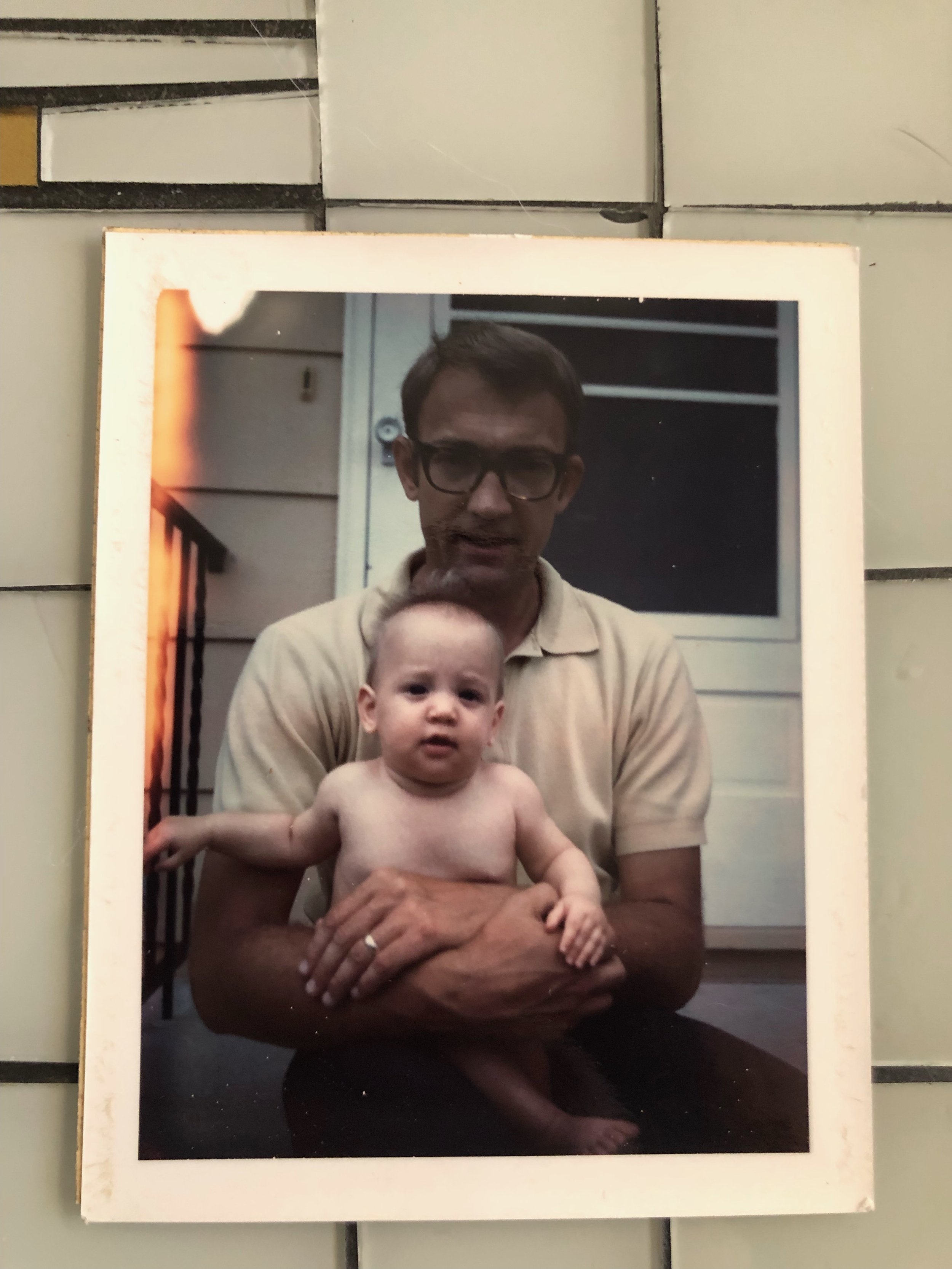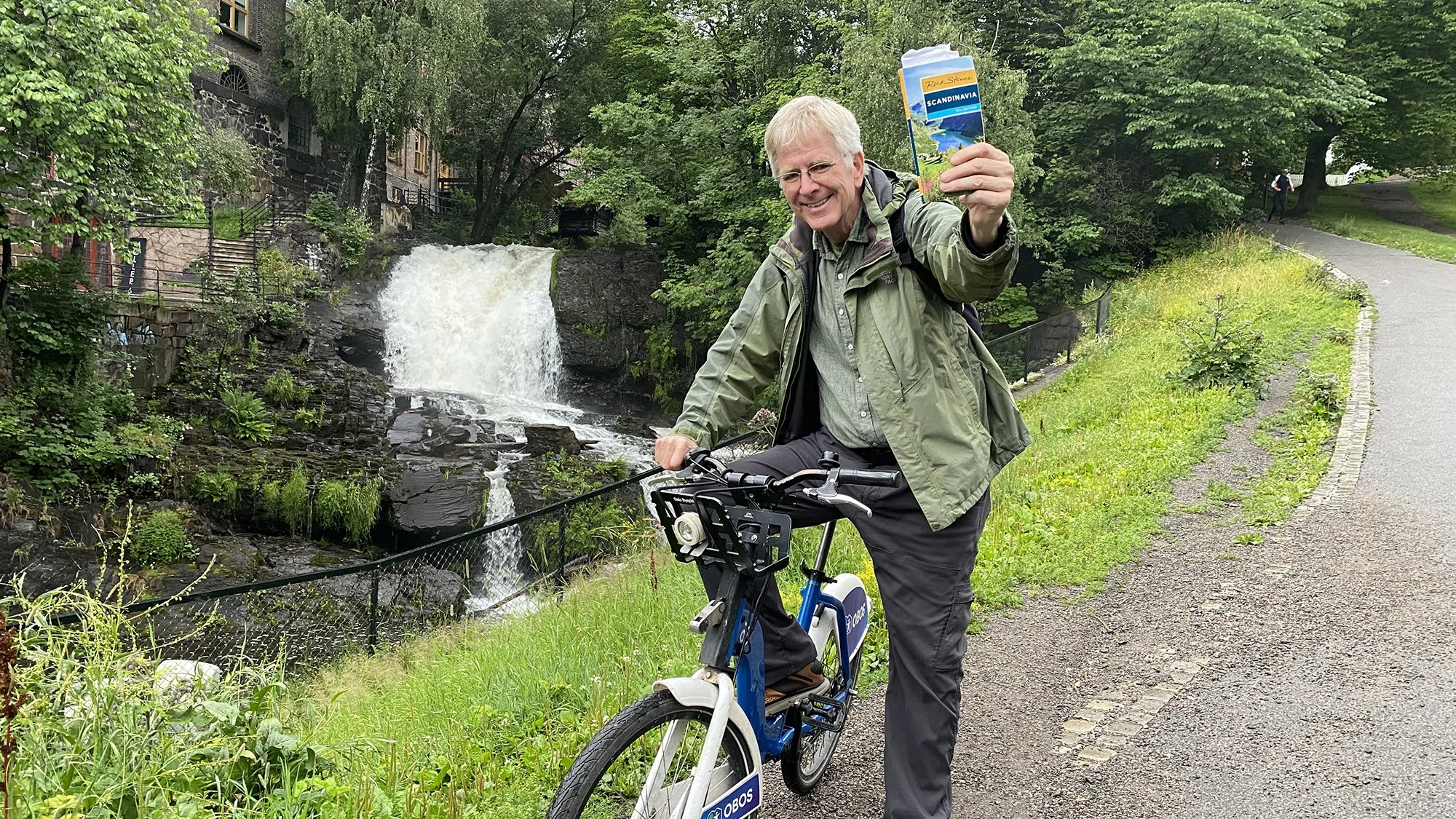Holler if You Need Anything
Dear reader, it’s been a while.
It feels important for me to explain my absence over the past two weeks, especially to those of you who have been following this column faithfully. We’re neighbors, after all—we could even be considered friends by now—so I owe you that much.
The story starts with a phone call, even though I was taught in creative writing classes never to start with a ringing phone or a buzzing alarm clock. Too hackneyed. But that rule applies to writing fiction and I’m writing about real life, so I can start with the phone ringing if I feel like it.
The call came at exactly 8:37 a.m. on October 16, a Sunday morning. “He was my favorite,” one of the caregivers at my father’s senior living center told me, and I could tell she was crying. After I hung up, still numb, I checked the time of the incoming call again and thought, 8:37. Such a reasonable time to die. Even with dementia, my dad was thoughtful enough to exit stage left without jarring his loved ones awake at an ungodly hour, especially on a weekend.
Where it all began. (Source: Author.)
A considerate and practical man, my father expressed his love for his daughters not in lavish gifts or effusive praise, but rather in oil changes, car washes, and full tanks of gasoline. On my visits over the years, the minute I pulled into his driveway, he’d fish a quarter from his pocket to gauge the safety of my tire tread. After letting the car sit for the requisite 15 minutes, he’d check the oil, wiping the dipstick with a clean, white cloth from a basket of neatly folded rags he made from t-shirts, old handkerchiefs, and pillowcases. When I’d leave, his parting words were always, “Holler if you need anything.” And believe me, sometimes I did need to holler.
His patented frugality was something my sisters and I bemoaned, especially as children relegated to PB&Js when we desperately wanted Big Macs, or on summer vacations when we’d sail past pizza parlors and motels with outdoor swimming pools on our way to a campground to eat beef stew from a can. But in early adulthood when car repairs or dental work put the squeeze on our finances, help for his daughters arrived by mail in the form of a blue check with the name of the crisis (“new radiator” or “root canal”) written on the memo line. I recently found a card he sent when my beloved dog Bandit died. Inside there was a letter, folded carefully into thirds, in which he noted that the enclosed check was intended to cover the cost of cremation since I didn’t have a backyard for a proper burial. I wish I could remember if he’d written “dog cremation” as a memo.
My dad was pragmatic, logical, and intentional, holding on to just what he needed, and very little more. His junk drawer was sparsely populated with the bare necessities: a stapler, seven or eight paper clips, a pencil sharpener, a small tape measure, a Phillips screwdriver, a couple of clothespins, postage stamps, and a calculator. There were clipped coupons for Culver’s, and a stack of scratch paper he’d made by cutting junk mail and used envelopes into perfect squares. On one of these were his handwritten instructions for making hard-boiled eggs.
Scene from the junk drawer. (Source: Author.)
One time in search of a rubber band, I opened his junk drawer and found one. Just one. The single rubber band was so old that it turned to dust in my fingers the moment I stretched it. “Well, that one’s shot,” he said, and made a mental note to keep the rubber band off of the broccoli the next time he bought it.
His methodical way of doing ordinary things like coiling up cords, shoveling snow from the driveway, taking out the trash, and doing dishes turned each task into a meditation. Even sweeping the kitchen floor was seemingly done with devotional intention. I stood in awe of the effortlessness of his order, his economy of motion, forever mystified that we shared genetic material.
I wish I’d inherited my dad’s discipline for putting things away immediately after using them, or the way he opened, read, and dealt with each piece of mail the moment it passed through his hands. I wish I was organized and tidy, and that I could make a habit of removing dirt from my shoes with a stiff bristled brush, wiping them with a soft cloth, and inserting cedar shoe trees before putting them away, the way he did with the Florsheim Imperial wingtips he purchased in the late 1960s—a pair of shoes that outlived him.
My dad’s passing came exactly one month after my family and I celebrated his 81st birthday with him. He’d perked up for that party, pulling out a few familiar jokes like the one about how he would prefer cake if it were made entirely of frosting. His rallying that day was like a final burst of color, the way maples and oaks turn to crimson and gold before the slow fade, before the gentle rustling of leaves to the ground.
On what would turn out to be my last visit with my father, ten days after the birthday celebration, I sat with him in the dining room in the memory care unit while he used a knife and fork to cut everything on his plate, including a snickerdoodle cookie, into small squares that he pushed to the edges. When it came time for me to leave for the airport, I leaned over to hug him, worried my arms would crush his frail, bony frame, but I squeezed hard anyhow. As I stood up to leave, he said in the smallest of voices, “Holler if you need anything.” All the way home to Montana, I kept those words close, like a piece of hard candy tucked up between cheek and gums to slowly savor the sweetness.
I walked my dogs before the sun came up today, the beginning of my twelfth day here on earth without my dad. The morning was damp and cold: suitable weather for grieving. Shuffling through fallen leaves, I felt a pit in my stomach that rose to my throat as an urge to howl like a wolf, to emit a cry of loneliness into the void. I wanted to holler into the plum-colored darkness, “I need something!” but there were children at the corner waiting for the bus and I didn’t want to scare them.
As I watched the light in the east warm to an orange glow on the horizon, the clouds suddenly burst to life with neon pink light, and I burst into tears. You are allowed to do this when your dad dies, the same way you are allowed to begin the story with a phone ringing.
(Source: Author.)
When your dad dies, you are also allowed to attach meaning to whatever you want, and you are allowed to believe that anything is a sign. You’re free to believe your dad is responsible for practical magic, like getting you through TSA without taking your laptop out of the carry-on you packed and without regard for liquids, gels, or aerosols. You can believe he saved the perfect parking spot for you, that he made the series of green lights happen, and that he placed that quarter next to your car tire as a reminder to check the tread. You can believe he is responsible for a shooting star, too, or a flawless red maple leaf drifting down and landing squarely on the toe of your shoe. At least, that’s what I want to believe, and I don’t think anyone could prove me wrong with science. And if they can, I’d rather not know about it, anyhow.
Read more of our weekly Neighborhood Storyteller columns here!







Driving from my dismal exurban hotel to the walkable downtown of a Florida beach town led me to a resolution: Start seeking out the kind of lodging that accentuates the best reasons for visiting a place, and hopefully discourage the kind of development that’s contributing to its demise.